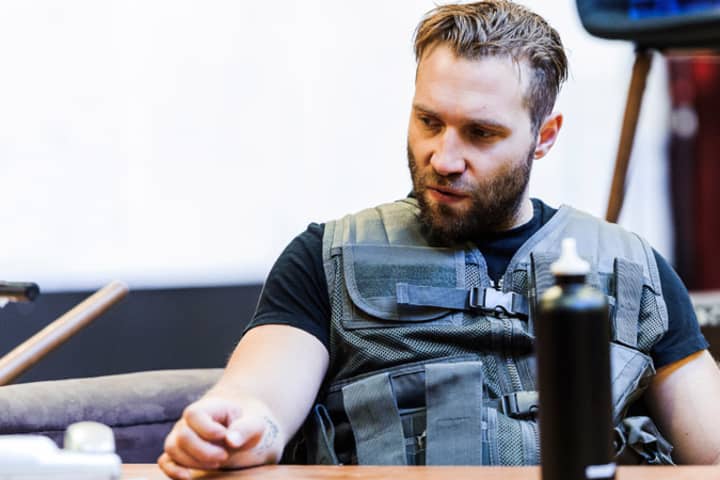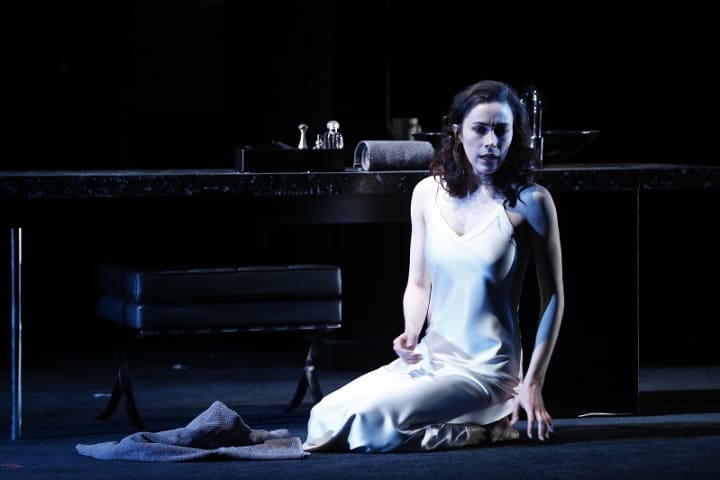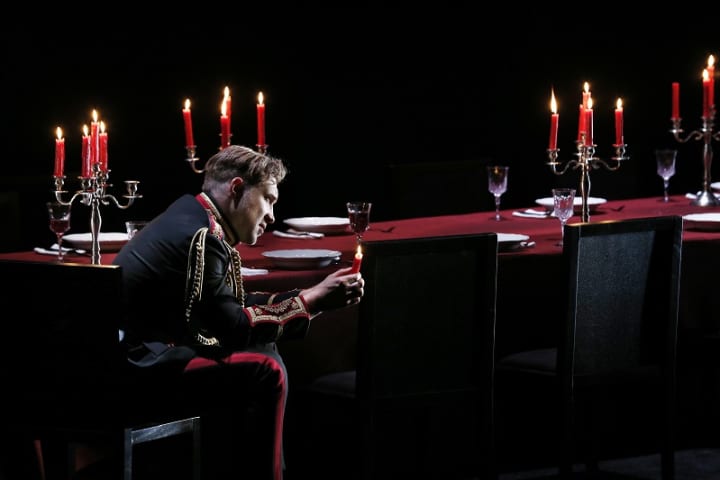Ahead of the Macbeth season, Jane Montgomery Griffiths tells us about the driving force of human agency.
What is Macbeth about?
I would say that it’s a play that’s open to multiple interpretations, every production is different, every production has a different driving force. For me, the text is really an extraordinary examination of evil, and how one can be pulled into the dark side. That’s a bit difficult for us to comprehend in a contemporary world, where we don’t have witches, and we don’t have the context of James the First, and we don’t have the context of the paranoia of evil and witchery that was so current when the play was written. So I think for us in this production, which is very contemporary and very violent, it’s really about how people can make wrong choices. That does potentially change the role of the witches to some extent. In this production, it’s almost as though we make our own decisions – there’s not fate, there’s not God, there is a man who is at the height of his power who wants more, and his wife also wants more and they make their own choice. So it actually takes away some of the supernatural to put it in human agency.
How do you embody your characters?
There are two distinct ways of approaching the witches as an actor: you can try to find a backstory, you can apply a little bit of basic Stanislavski and characterisation – personally I find that completely useless with the witches because they’re there as functionaries, they’re there as provocations and as catalysts, and potentially as an aura too. An aura of darkness, an aura of strangeness. I think it makes no sense at all for an actor to try and work out what’s the reality of these witches. Because that’s not what the play’s about. So in approaching the witches I’m interested in levels of pain. I’m interested in how extremes compete with actions, push you to an emotional state which pushes you beyond the normal realm, and that’s actually something that happened to most of the characters, certainly most of the protagonists in the play, they’re pushed to do something that they would never normally do. The witches, whoever they are, whatever their context is, they fulfil the function of highlighting those extreme thresholds, those thresholds where we can make a choice. They live in a liminal threshold-type place where they are neither normal citizens nor abject monsters, they are just something ‘other’. We spend a lot of time in our current politics blaming the other, demonising the other, whether that be on ethnic, religious or political grounds, so I don’t think there is any way an actor can try to, in a characterisation form, channel that. But there is a way that we can channel the aura and atmosphere, the energy of otherness – to be frankly odd, and our job is to be odd. There are different forms of acting, and one of the most liberating is just playing the text. It’s not inaccessible, it’s our language.
What was your first experience with Shakespeare?
I grew up in the UK just outside London, so at the age of 14 onwards I’d take myself on the train to see the RSC or the National Theatre on weekends. As a professional actor, I’ve done probably more Shakespeare than any other playwright. I think in the UK it’s a bit different, Shakespeare can be taught in school, but there is also a vibrancy and a frequency of productions, and a preparedness to experiment, even in terms of what’s traditional and what isn’t, in a way that just isn’t possible in Australia because we don’t have the critical mass ,the funding for companies, the productions coming around. I’d spend weekends seeing three or four productions, taking the bus up to Stratford to see them again and again – you just can’t do that here.
Macbeth plays at Southbank Theatre from 5 June. Book now.
Published on 30 May 2017





